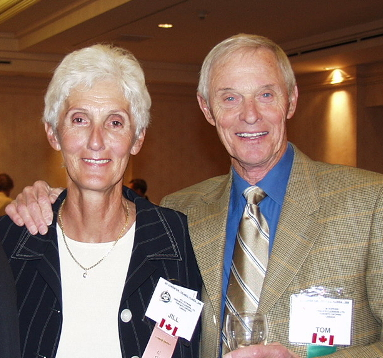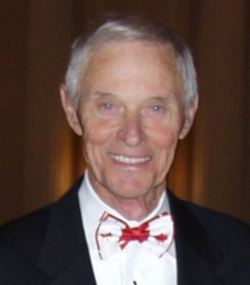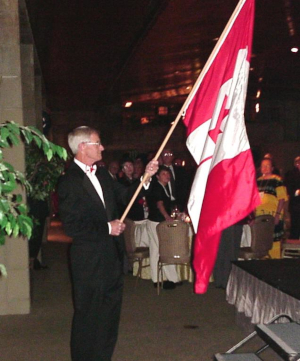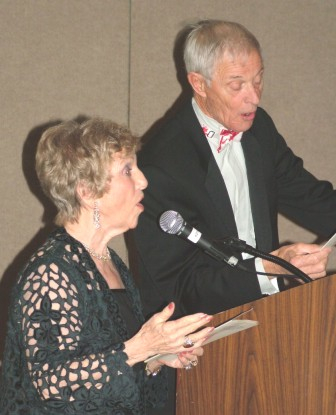Retiring Well – How It’s Done

Retirement starts on a specified date, but retiring well begins far earlier. The true leader plans for, and works toward, a smooth retirement transition as hard as he or she works toward any other big goal for the company. Maybe harder.
Let’s look at a success story of someone who retired well, enabling his company to go on to greater heights of profitability and stability ever since.
Gibson’s Cleaners Co. Ltd., Toronto, ON
The current president of Gibson’s, Rob McConnell, had a bit of a leg-up in taking the top chair as the son-in-law of his predecessor. But previous president Tom Hopkins, a dry cleaning industry legend, was still very thoughtful and intentional in how he groomed Rob for the position.

Rob has been president for 27 years, and has had a good chance to look back and see how Tom’s plans panned out. Hopkins was also president for 27 years, and in that time he made a name for himself throughout the Canadian industry and beyond as a sharp operator, a compassionate person, and someone who could make anybody laugh.
Step 1: Meet the Best
“The most significant thing he did to help me make the transition to the leadership role was introduce me to the Great Lakes Cost Group, Apparelmaster, and The Round Table of Launderers and Dry Cleaners,” Rob said. “The members of these groups were led by successful and progressive individuals willing to share their successes and – maybe more importantly – their failures. Many have become lifelong friends.”

Tom had learned a great deal from these groups; he had made a point of joining them and other industry groups to broaden his perspective and learn the road to success the easy way (from others), rather than the hard way (by falling and getting back up again himself). By establishing early on that he didn’t have all the answers, he avoided the pitfall of having Rob learn only his own methods. This left Rob free to draw on great information and techniques from across a wide spectrum of professionals.
“For the same reasons, Tom stressed the importance of getting involved in industry associations like Canadian Fabricare Association (CFA), Drycleaning & Laundry Institute (DLI) and the International Drycleaners Congress (IDC). One thing I greatly admire about our industry is that the majority of owners are always willing to help one another and share information,” Rob said.
Step 2: Hands-on Training
The rest of your team will not respect your successor if he or she was given the ‘silver spoon’ treatment, being brought in at an executive level from the start. They’ve learned their jobs, and perfected what they are doing, by hard work and daily experience. Having someone over them who does not understand how things really work can kill morale and lead to dysfunction down the road.

“I joined Gibsons as Sales Manager in Gibson’s new Uniform Division,” Rob said. A good position, but not at the top. Still, it might not have been the best place to begin, he admits in hindsight. “This meant I spent less time learning operations, and as most of us know, operations is the core of our business. Eventually, I became confident with these systems and processes, but I could have been more effective had I focused more on that side of the business from the start,” he said. Lesson learned.
Step 3: Learn, Adjust, Retire Better
A great leader learns from his or her predecessor, makes mistakes, learns from them, and passes on that knowledge to the next generation of leadership. Because he had a good grounding in the industry through Tom’s example of association and cost group involvement, and worked several years under the previous president, Rob has honed his own retirement plan carefully.

“Regardless of any successors’ previous experience, they need to be given the opportunity to become involved in industry associations and cost groups. Sometimes it can feel like you’re ‘on an island’ running a business, but you’re not alone. Most business owners feel this way. Associations and cost groups enable you to share your frustrations and seek advice,” he said.
“I also recommend DLI’s Introduction to Dry Cleaning course, as it gives the knowledge and basics of what we do. Our industry is one-of-a-kind, and therefore I think it’s important for a successor to spend time working in all of your business functions, including Sales, Service, Operations and Administration.”
His final piece of advice is golden: “I think it’s important to share your past highs and lows, ups and downs. Honesty and transparency is key.”
Rob’s not ready to retire, but he’s actively putting his own advice into practice on a daily basis. When he’s ready to slow down, he can be assured Gibson’s will be going strong and moving into its next phase of success because he didn’t wait until he’d announced his retirement to begin a transition. That’s retiring well.






